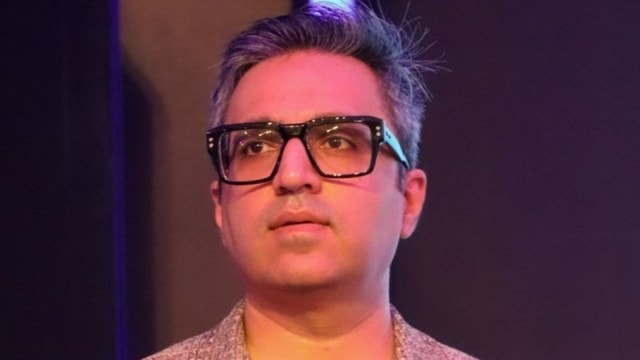Delhi HC refuses to restrain ex-BharatPe MD Ashneer Grover from alienating shares sold by firm’s co-founder
Reacting to the verdict, former BharatPe MD Ashneer Grover said the order will go a long way in protecting the rights of founders in India.
 Grover criticised the atmosphere at Ernst & Young (EY), calling it "lifeless."
Grover criticised the atmosphere at Ernst & Young (EY), calling it "lifeless."The Delhi High Court in an interim order on Friday refused to restrain former BharatPe MD Ashneer Grover from alienating, transferring or creating any third-party rights in the shares that the company’s co-founder Shashvat Nakrani had sold to the former.
A single-judge bench of Justice Sachin Datta said that the court found no merit in Nakrani’s case for granting interim relief. The high court, however, directed that in case Grover “proposes to transfer/deal with/alienate the shares in question, prior intimation with regard to any such proposed transaction(s) together with details thereof, shall be provided to the court”.
The interim order came in Nakrani’s application filed in his pending lawsuit in which he has sought a declaration that the alleged oral agreement of July 2, 2018, entered into between him and Grover regarding 2,447 shares in Resilient Innovations Private Limited (RIPL, the creator of BharatPe app) stands rescinded and terminated in accordance with law and contract and, consequently, has become void.
The high court said that evidently the transfer of shares in favour of Grover and the consequent entry/recordal of Grover as a shareholder of the concerned company was pursuant to approval by the Board of Directors of RIPL or a duly constituted committee of the said Board; hence the transfer of shares was by a “statutorily recognised process”.
Justice Datta also noted that in the ensuing years, a series of agreements (16 in number) were entered into wherein Nakrani and the Grover sold their shareholdings to external investors.
“Admittedly, in all these agreements, to which both the plaintiff (Nakrani) and the defendant (Grover) were parties, the defendant was represented to be a shareholder of the concerned company. It is completely untenable for the plaintiff to suggest that the defendant was wrongly portrayed as a shareholder in all these agreements or that the plaintiff was “induced” to sign these agreements,” the high court underscored.
The high court further rejected Nakrani’s contention that the title in the concerned shares never passed to Grover due to “non-payment of consideration” and so Nakrani could “at this stage repudiate” the contract for sale of shares, observing that the contention is contrary to the scheme of the Sale of Goods Act.
Justice Datta observed that under the statutory framework, for the purpose of passing of title, what is relevant is whether the contract for the sale of goods has been concluded, and it is “immaterial whether the time of payment of price or the time of delivery of goods or both is postponed”. In the present case, the court said, what is relevant is the “conclusion of the contract for sale of shares and not whether payment or delivery or both have been postponed or not”.
The high court thereafter said that even if it is assumed that the consideration of Rs 24,470 was not paid at the time of execution of Form SH-4 (contract) as alleged, it is evident from Nakrani’s own March 18 legal notice that it agreed to postpone the receipt of consideration. The high court said that at best Nakrani has a “right to sue for the unpaid consideration and/ or claim damages”.
Nakrani claimed in the suit that while executing the agreement, he did not receive the consideration from Grover in any mode, including cash. He had submitted that Grover represented and assured him that he would pay the purchase consideration in due course but since the purchase consideration was not paid, the property/title in the plaintiff’s shares did not pass on to the defendant and the transaction be treated as repudiated.
Meanwhile, after the order, Grover posted on X, formerly Twitter, “I am highly indebted to Hon’ble High Court to pass this order (I’ve just been informed of order read out in Court) in my favour and protecting my equity. We as Founders work hard to create ‘equity’ value and this order shall go a long way in protecting rights of Founders in India. More importantly it’ll teach an important lesson to co – founders to respect each other’s equity and not break the ‘bro – code’.”












